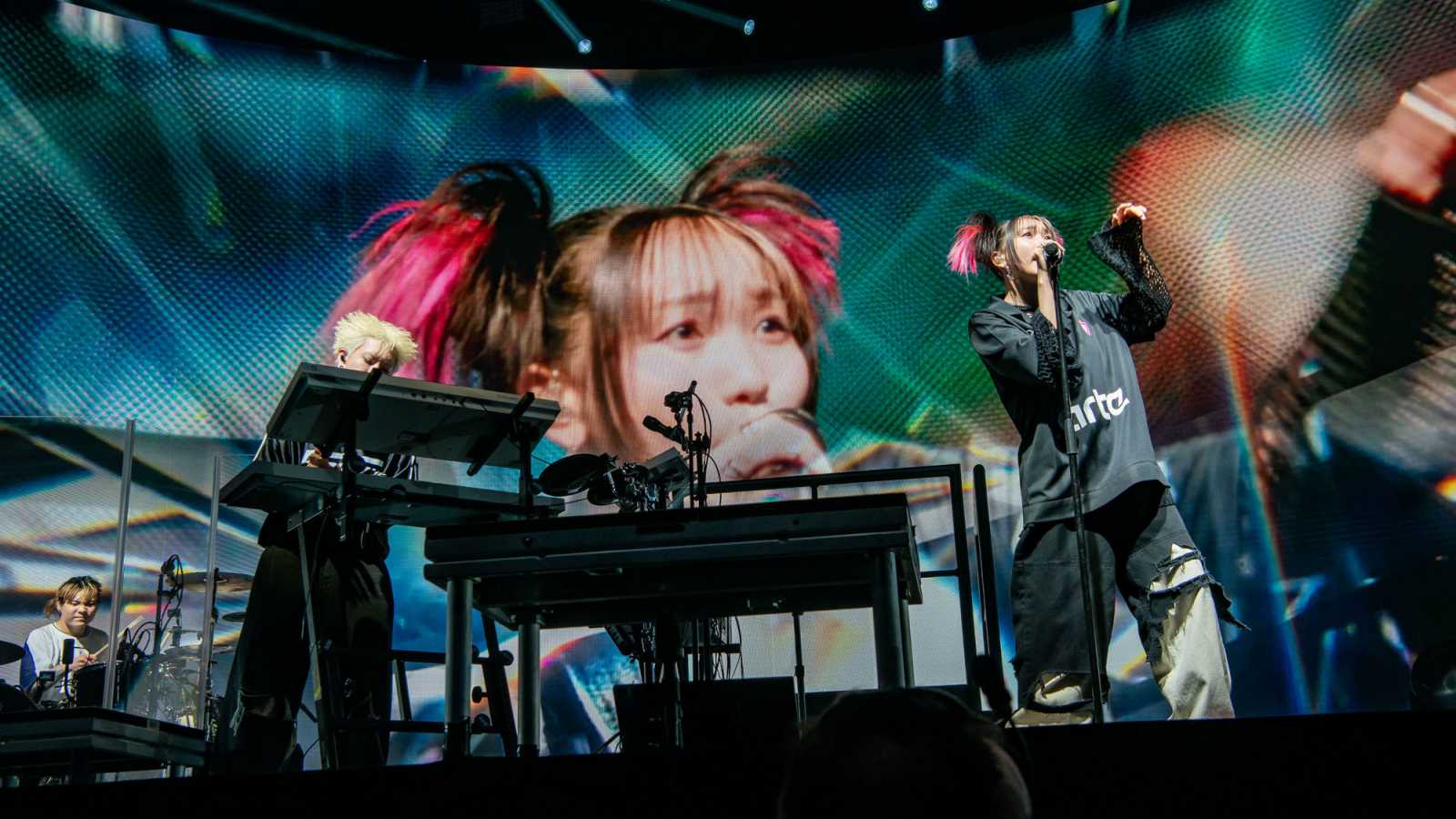Hamasaki Ayumi - I am...
A memorable album by Japan's queen of pop.
I am... marked a change in Hamasaki Ayumi’s career. The album was, for the most part, composed by her (under the name of CREA). Released three months after the 9/11 attack in America, the artwork focused on the concept of world peace that Ayumi desired.
The introduction of I am... is an emotional verse sung a capella. Ayumi sings softly before unleashing the power within, and indeed if she were any louder she'd be screaming. It's a surprising beginning, and on first listen, one might think the short vocal expulsion forms the entire content of the track as all falls silent for a second before the music begins. The entire atmosphere of the song is something rarely witnessed elsewhere, it is as if Ayumi has taken the rock genre, studied it, and decided to create her very own spin-off.
Commencing with heavy vibration and continuing the theme already set in motion, opening Run is a brief lesson in the use of bass guitars on the album. It is adequate but somewhat repetitive, and fails to introduce any new flavor to the dish.
The next song, Connected, is another departure for Ayumi, this time with DJ (Ferry Corsten) arranging the track. True to stereotypical DJ form, Ferry Corsten opens the song on an edgy beat. Being as it is Ayumi’s one and only trance track, Connected stands out, and not at all like a sore thumb.
Almost in homage to Connected, the first notes of UNITE! are played on a synthetic keyboard with a single trance sample backing. The track builds up slowly as Ayumi sings the first two lines and then the song explodes into a rock/trance frenzy. It has been said that UNITE! is an unnecessary single after evolution because of their similar styles, but after repeated plays UNITE! manages to break away from that stigma and come into its own.
Next up is one of Ayumi’s greatest hits, one that has become a signature during concerts and is perhaps the greatest of her self-penned compositions. evolution begins slowly with scant use of music as Ayumi introduces what will soon transform into an unrestrained rock song. Delivered with high-pitched vocals and utter confidence, this song is one every fan of Ayumi must listen to.
Lesser-known but by no means a filler track, Naturally enters on a similar note of digital samples running riot. It is softer than evolution but no less strict and crisp in beat. Recognizing that she was on to a good thing when she wrote the echo technique into evolution, Ayumi takes it up a notch and has every line of the verse answered. This, however, does not detract from the song - if anything it adds a generous dollop of originality. Another crowd-pleaser, NEVER EVER, starts like a lullaby. It's a curious choice and suggests darkness as it twists and turns. It’s interesting to note the way the background vocals contribute to the composition and succeed in fooling the listener into believing that there are many more instruments involved. NEVER EVER fades out again like a lullaby and flows into the next track, still alone.
Upon first listen, still alone seems like a filler track. Some of the background vocals don't sound quite right, and there's the thought that the album still has a long time left to run. These factors add up and make still alone a track most people skip over. However, the song is far from bad, it is just unfortunately short of extraordinary. Arriving straight after the lack-lustre still alone and somewhat lacking itself is Daybreak. Melding in with the other songs that dominate the middle of the album, it appears the arranger wasn't too bothered about the song, so maybe the listener shouldn't be either.
Things pick up a bit with taskinlude, the first in the task saga. taskinlude provides a decent summary of the music so far and hints at the high emotion still to come. Following is M, a song that initiated debate between fans as to Ayumi’s religious stance. M draws on Christian influences as she prays to the mother of Jesus for guidance on love. The instrumental is a grand feast, a mix of regular instruments and digital effects that come together in a glorious collision of everyday rock and extreme experimental. After so much pure rock, M is a welcome change and a definite highlight.
The next song was originally a song by Ayumi and Keiko of GLOBE. A Song is born was written as a fund raiser in the aftermath of the 9/11 attacks. Written by Ayumi and composed by Komuro Tetsuya, the track sports a brand new blend of ideas. The music is digital and remains so throughout, and the harmonies are heavenly. The bridge alone is exceptional; in complete contrast to the three songs prior to the interlude, the ones after it are proving a gentle remedy. Track twelve is a sensation.
Much like A Song is born, the melody for Dearest is of particularly good quality. Dearest moves gently, though not without purpose, along a road paved by the piano. During the chorus, drums and guitars accompany the piano and Ayumi takes a chance to slip into her nasally high notes. Not one part of the song stands out: the entire piece is striking. Then, no more words creeps in slowly. Though the song gives the first impression of being drab and dreary, no more words crescendos with a compelling conclusion and serves as a fitting end to the string of ballads and helps transition to Endless sorrow ~gone with the wind ver.~.
This version of Endless sorrow is vastly different from the original. In light of 9/11, the original Endless sorrow was too sad and negative, so Ayumi whipped up a frenzy to change it into something less so. Endless sorrow ~gone with the wind ver.~ is in tune with the main genre of the album. With a strict pace with matching vocals, the song is loud and lively and definitely a success.
Included as a hidden track, flower garden slips in as a collage of colors and voices. Other than the main vocals, the song has a live session atmosphere. The mood is happy and the song lively. It's not surprising that this is a favorite at concerts.
For an album as long as I am..., it's understandable that there would be moments of weakness. Regardless of that, however, the album still scores immensely well and is definitely one of Ayumi's best to date.



